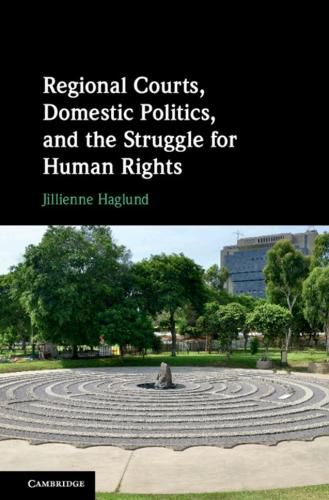Readings Newsletter
Become a Readings Member to make your shopping experience even easier.
Sign in or sign up for free!
You’re not far away from qualifying for FREE standard shipping within Australia
You’ve qualified for FREE standard shipping within Australia
The cart is loading…






Despite substantial growth in past decades, international human rights law faces significant enforcement challenges and threats to legitimacy in many parts of the world. Regional human rights courts, like the European and Inter-American Courts of Human Rights, represent unique institutions that allow individuals to file formal complaints with an international legal body and render judgments against states. In this book, Jillienne Haglund focuses on regional human rights court deterrence, or the extent to which adverse judgments discourage the commission of future human rights abuses. She argues that regional court deterrence is more likely when the chief executive has the capacity and willingness to respond to adverse regional court judgments. Drawing comparisons across Europe and the Americas, this book uses quantitative data analyses, supplemented with qualitative evidence from many adverse judgments, to explain the conditions under which regional courts deter future rights abuses.
$9.00 standard shipping within Australia
FREE standard shipping within Australia for orders over $100.00
Express & International shipping calculated at checkout
Despite substantial growth in past decades, international human rights law faces significant enforcement challenges and threats to legitimacy in many parts of the world. Regional human rights courts, like the European and Inter-American Courts of Human Rights, represent unique institutions that allow individuals to file formal complaints with an international legal body and render judgments against states. In this book, Jillienne Haglund focuses on regional human rights court deterrence, or the extent to which adverse judgments discourage the commission of future human rights abuses. She argues that regional court deterrence is more likely when the chief executive has the capacity and willingness to respond to adverse regional court judgments. Drawing comparisons across Europe and the Americas, this book uses quantitative data analyses, supplemented with qualitative evidence from many adverse judgments, to explain the conditions under which regional courts deter future rights abuses.